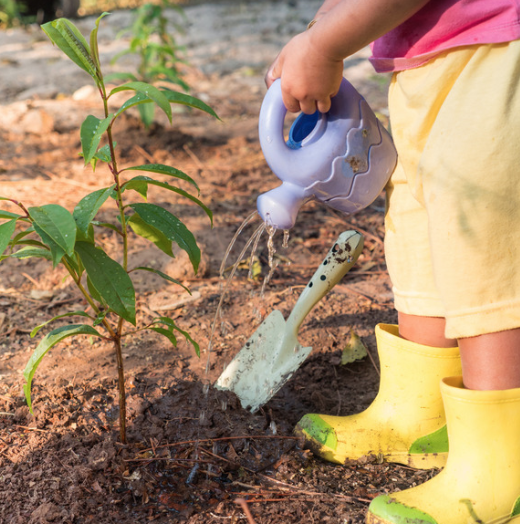
By Molly McCracken
Previously published in the Winnipeg Free Press January 25, 2022
My partner and I ushered 2022 during frigid temperatures trying to protect our two preschoolers, who can’t be vaccinated yet, from Omicron. I am living it; we are all living it: a global pandemic and climate crisis.
Our children will be 32 and 33 in 2050: the year by which the United Nations body of expert scientists urges the world to be off of fossil fuels or face catastrophic impacts. We must do all we can to bring emissions way down while preparing for climate emergencies. Research shows the prairies are extremely vulnerable to climate change weather events. Children growing up today will face exponentially more droughts, smoke, and long stretches of hot and cold weather.
COVID is a litmus test of how we protect our population from external threats. Manitoba is failing: Manitoba has the second-highest rate of COVID deaths per capita after Quebec. We simply cannot leave it up to individuals to protect themselves from pandemics and climate change. It is morally wrong and unnecessary for vulnerable people, children and the elderly to suffer with their health and lives.
The provincial government must act boldly to protect our population from COVID and future threats.
Instead, the Manitoba government has not restored funding cuts to healthcare to pre-pandemic levels and has not allocated or spent $381 million of COVID contingency funding from this year’s budget. The previously projected $2 billion dollar deficit is now projected to be $1 billion. It is foolish to sit on money that could be used to help people in need during a crisis. Federal CERB support ended in November. The province is doing nothing to help the unemployed, forcing these folks to join the 70,000 Manitobans struggling to survive on piddly provincial assistance rates.
According to Statistics Canada data, Manitoba workers in the lowest hourly wage quartile earning $17 or less per hour lost the most jobs or majority of their hours during the pandemic. Just a year ago a full quarter of low-income workers were out of work. Many will never get their jobs back. In contrast, for those in the top half of hourly wages, earning $24 per hour and up, the job impact of the pandemic was largely over by the summer of 2020.
Source: Statistics Canada, Labour Force Survey, PUMF. Seasonally adjusted
The 15% of workers who are self-employed lost jobs as well. There are 15,000 fewer self-employed workers in Manitoba since the beginning of the pandemic.
Manitoba’s fiscal update reports 78,000 underemployed and unemployed Manitobans. Our first priority should be to create good jobs starting with adequately staffing health, long term care, education and child care sectors, with proper compensation.
A look at who’s lost and gained in this pandemic should guide public policy. The middle and upper class have recovered and saved money otherwise spent on vacations, traveling and eating out. Now is the time to add a fourth and fifth income tax bracket to upper income earners in Manitoba to fund supports for low-income workers. Corporations making high profits boosted by federal COVID benefits should also pay their fair share through an increase in business tax on large businesses.
The Manitoba government should make targeted investments to create tens of thousands jobs to both prepare for and mitigate climate change. The Road to Resilience: a Community-Based Climate Action Plan shows how Manitoba can cut fossil fuel consumption in half by 2030. This mammoth task must begin immediately by transforming food systems, buildings, and transportation in our prairie province.
Manitoba Budget 2022/2023 should lay the first stones in this pathway. To get workers ready there should be a focus on education and training with free cost tuition to train for green jobs. To accelerate the creation of these jobs at the scale needed, Manitoba should empower public corporations to lead this transition. This should be done in partnership with Indigenous leadership to ensure the transition is equitable.
Old residential and commercial building stock should be made energy efficient while improving ventilation and getting off of GHG emitting natural gas. Quality public housing must be built to fight homelessness and core housing need.
Manitoba’s largest GHG emissions come from transportation. To improve ridership after COVID, the province should heavily invest in public transit and made-in-Manitoba electric buses.
Manitoba’s hard-hit agriculture and food services sector should be re-oriented to provide healthy local food to fight rising food inflation costs and supply chain problems by food imported from regions at risk of drought.
Without targeted public and fiscal policy, many Manitobans will be left behind by COVID. This will result in lost human and economic potential. Debt servicing is under budget due to low interest rates, and below the rates of other provinces. Our net debt to GDP ratio at 37.6% is lower than Ontario and Quebec. Public investment in a just recovery and green energy transition is needed immediately. Manitoba cannot afford NOT to act.
Manitoba must learn from COVID so that our children and future generations can be prepared for the challenges on our doorstep.
Molly McCracken is the Manitoba director of the Canadian Centre for Policy Alternatives


